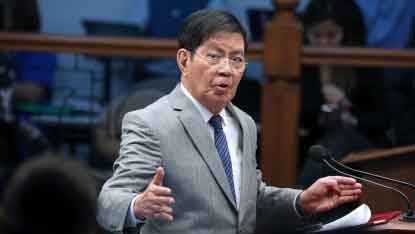The Department of Trade and Industry (DTI) said on Thursday a trade agreement between the Philippines and the United States remains unenforced as a deal on lowering tariffs continue to elude negotiators from both sides.
“As of today, we have not yet concluded and signed anything. There is nothing to implement because negotiations are still ongoing,” Trade Undersecretary Allan Gepty told the Senate Committee on Economic Affairs.
The clarification came after Washington agreed in July to reduce tariffs on Philippine exports to 19 percent from a previously announced 20 percent during a meeting between President Ferdinand Marcos Jr. and US President Donald Trump.
In exchange, the Philippines committed to cut tariffs on certain American goods—including soy, wheat, pharmaceutical products, and automobiles—to zero.
Marcos had highlighted that the arrangement would raise the country’s import limits on those US products. But senators pressed trade officials for answers, saying Congress had not been briefed on the deal.
Sen. Juan Miguel Zubiri, committee chair, said the Senate must be informed of the implications for domestic industries, especially agriculture, which could face steep competition from zero-tariff imports.
“Tariffs are not the sole domain of the Executive. These powers were delegated by Congress, and treaties require Senate concurrence,” Zubiri said. “Do not keep us blindsided with the outcome of the negotiations.”
Gepty admitted he could not estimate the potential revenue loss from the lower US tariff rate on Philippine exports. He only said market-access offers remain part of the ongoing talks.
Tariff Commission Commissioner Marissa Paderon added that while the agency is not directly part of the negotiations, it has provided data and analysis.
Between 2022 and 2024, she said, Philippine imports of American products under consideration amounted to $4.45 billion, or 16 percent of total imports from the US.




